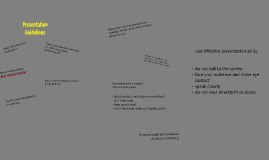Guidelines Presentation
Transcript: To help you understand and apply the information in this chapter, consider these questions: 1. When you began your counseling training program, what mistaken assumption did you hold? 2. Provide an example of a more complex process of change for a client 3. How might one’s religious beliefs help or hinder effective counseling? 4. What factors might inhibit a client’s ability to make rational choice? Do Not Assume That Change is Simple The act of being judgemental involves moral or ethical assessments. Counselors should assess clients in terms of psychological theory and practice. Assessments might involve inquiry into family background, educational and employment experience, psychopathology, intellectual abilities, and situational influences. Clients have a right to their own personal values. Clients differ in their perceptions and reactions to the events in their lives and even to their psychological states. Context is everything. Clients can learn that it is acceptable to experience any feeling but that one should not act on every thing. Summary Factors such as significant others, biological influences, culture, and individual differences in response to therapy can all contribute to the complexity of the counseling process (Krause, Howard, & Lutz, 1998). It is important for the therapist to take into account an entire family system and not just one individual’s problem as the main focus. Client’s readiness to change is an important determining factor. Prochaska’s Stages of Change Model Client(s) may lack awareness of the problem Client(s) are aware of the problem but are only beginning to consider how to remedy it. Client(s) are only in the beginning stages of taking actions to change. James Bass, Danielle Bryant, Kourtnie Carroll & Penny Peng When we talk with other people, ordinarily we assume that we know what they are feeling or thinking. Experience in counseling demonstrates this to be false. In practice, many clients will tell you if you're wrong. LISTEN to these corrections. Proceed through the process with tentativeness and verify what you think you know about your client. “Friends and family provide agreement and sympathy. Counselors provide empathy to help clients explore their problems and become aware of their feelings and thoughts.” Do Not Assume That Change is Simple A Few Mistaken Assumptions Make Psychological Assessments, Not Moral Judgements Do Not Assume That You Know Clients' Feelings, Thoughts, and Behaviors Positive Thinking Does Not Equal Rational Thinking Though counselors may help clients improve their self-esteem and self-confidence, they should avoid trying to talk clients into improvement. Verbal persuasion by itself is one of the weakest methods of promoting change. Instead, counselors should challenge the clients to provide proof that their irrational beliefs will come true. This can come in the form of homework designed to test the rationality of their beliefs. Even if the fear comes true, the counselor can acknowledge the unpleasantness of the event, but point out that the client did survive the event. Agreement Does Not Equal Empathy Do Not Assume That You Know Clients' Feelings, Thoughts, and Behaviors What is empathy? Empathy refers to a deep comprehension of the subjective world of clients. Agreement suggests that the counselor approves of the client's behavior. Sympathy indicates that the counselor feels sorry for the client. Do Not Assume That You Know How Clients REACT to Feelings, Thoughts, and Behaviors

















